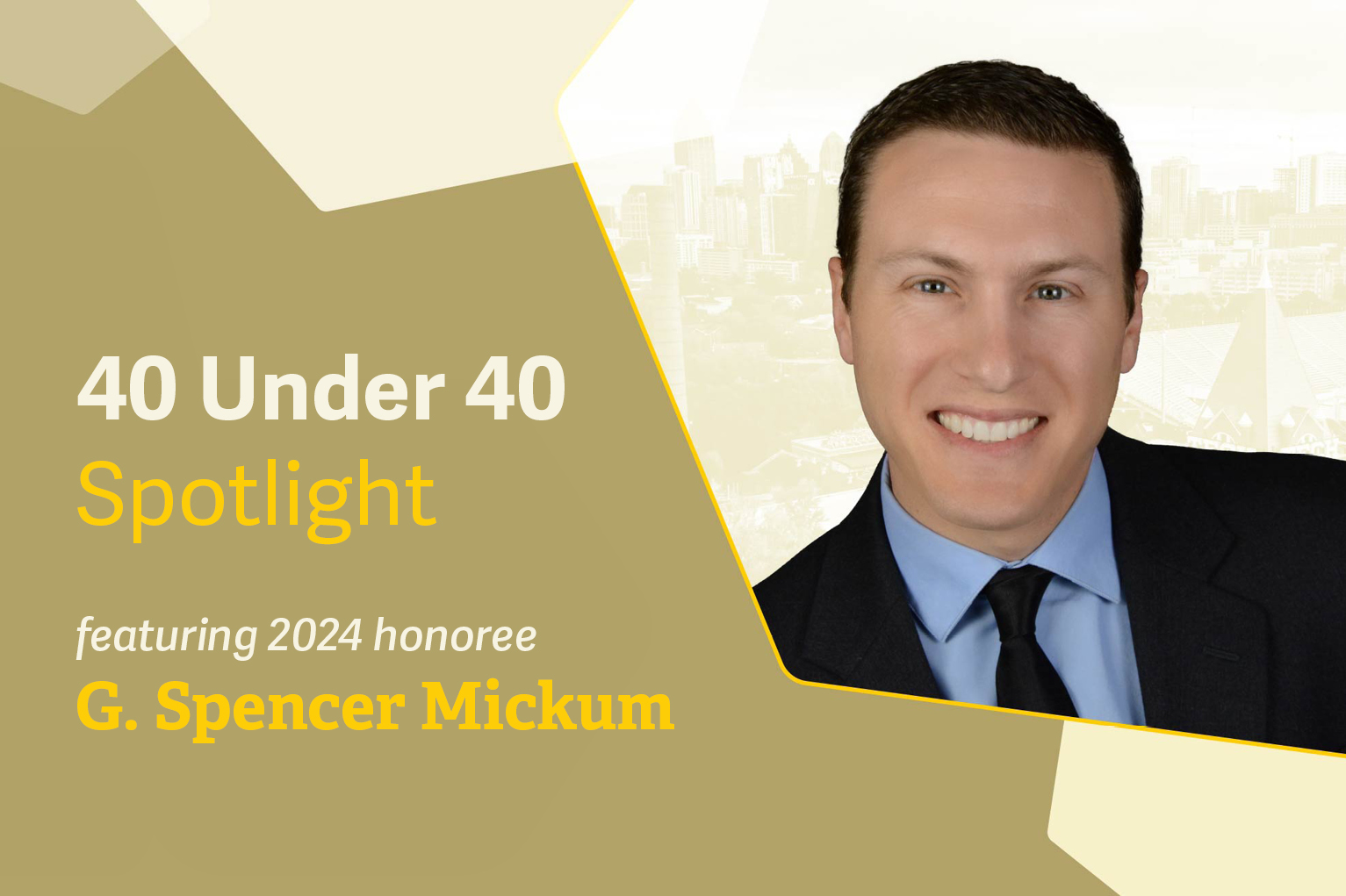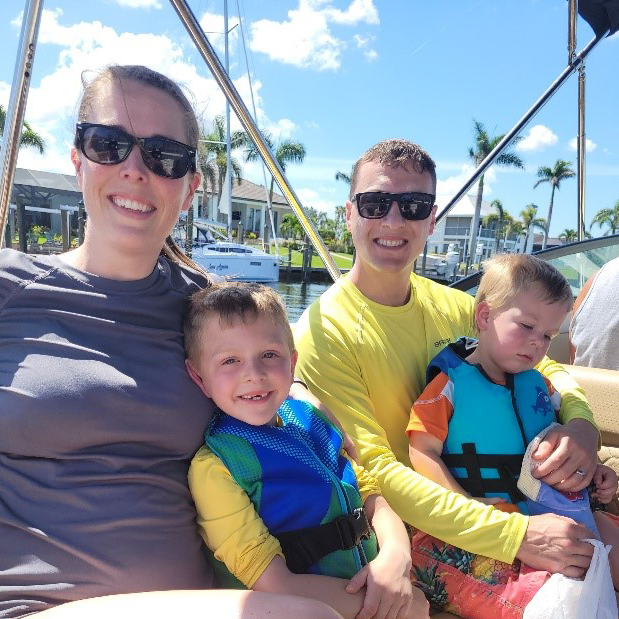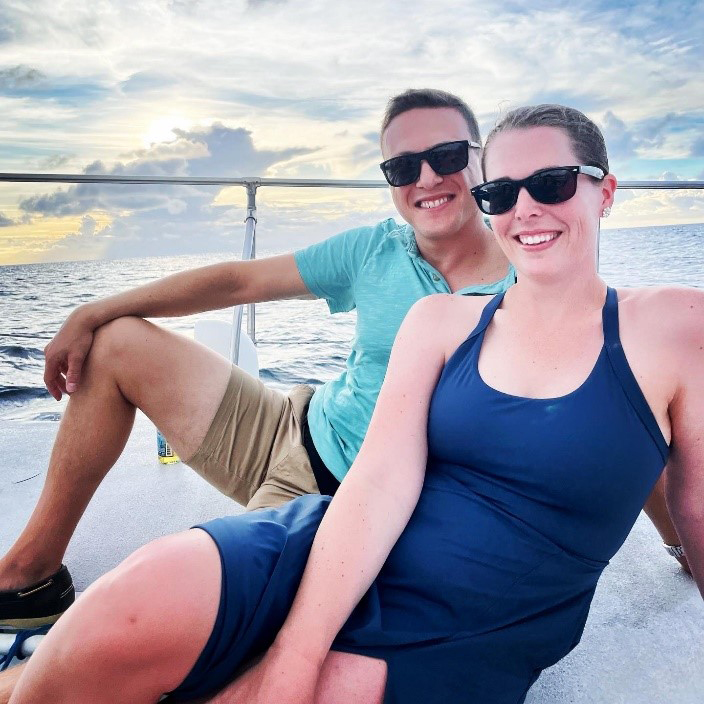
40 Under 40 Spotlight: G. Spencer Mickum
Get to know one of the Woodruff School's 2024 Class of 40 Under 40 honorees
September 4, 2024
By Courtney D. Sykes
G. Spencer Mickum, M.S. NRE 2013, Ph.D. NRE 2015, a distinguished nuclear and radiological engineer, has built a remarkable career integrating computational radiation transport with radiation measurements. With over a decade of experience, Mickum has become a leader in his field, recognized for his expertise in Monte Carlo radiation simulation, AutoCAD Inventor, Python, ANSYS, and radiation detection. He is currently the Principal Scientist at STERIS AST and has actively contributed to the ASTM International E61 committee on radiation processing since 2016. He holds leadership roles in various professional organizations and standards committees.
Learn about Mickum's motivations, challenges, and career advice in this insightful Q&A.
What motivated you to pursue a degree in nuclear and radiological engineering?
At the time of my application for college, I found the possibilities within the field of nuclear engineering to be the most exciting, even though I didn’t know what career paths the future held. I desired a career where I could initiate real change in a field full of potential, and I am thrilled to have been successful in it.
What has been the most challenging aspect of your career so far, and how did you overcome it?
One challenge of completing a Ph.D. in any discipline is that it can make you overqualified or too specialized for a wide range of jobs. As I neared the completion of my doctorate in nuclear engineering, I struggled to find job openings that matched my unique skills with computer simulations of radiation transmission. None of my online applications resulted in interviews, so I turned to networking. By attending another student’s master’s degree defense presentation and speaking to a member of his committee, I discovered a job opening that was a perfect fit.
What piece of advice would you give to current Woodruff School students at Georgia Tech?
Begin thinking about your next career step now. Planning ahead, networking appropriately, and developing applicable skill sets while in school can make all the difference when the time comes to enter the workforce or become an entrepreneur.
How do you stay current with advancements and changes in your field?
I’ve set up several Google alerts that provide me with recurring updates from the internet. Over the years, I’ve tailored the phrases and terminology within the alerts to bring me the most applicable information.
Can you share a specific project or accomplishment that you are particularly proud of?
After graduating from Georgia Tech, I led a five-year initiative at Hopewell Designs, Inc. to develop a high dose Cobalt-60 irradiator, a radiation source crucial for applications ranging from sterilization to space effects testing. The irradiator was installed at the National Institute for Standards and Technology (NIST) and is now used to standardize Cobalt-60 dose rates worldwide. This project was my brainchild, and I’m proud to have overseen its development from concept to operation.
How has your education at Georgia Tech influenced your career path?
My time at Georgia Tech was pivotal in shaping my career. The education and training I received in mathematical modeling have been particularly influential. While at school, I developed innovative techniques for modeling safeguards on nuclear material, and I’ve continued to use these skills throughout my career.
What soft skills do you believe are most important for success in engineering?
Kindness, though difficult to quantify, has been crucial to my career success. Professional kindness involves seeing beyond the technical work to the person you’re interacting with. Small gestures of kindness can have a long-lasting impact, fostering positive relationships that benefit you over time.
What is the best career advice you’ve ever received?
Do few things, but do them well.
How do you balance work and personal life, especially in a demanding field like engineering?
I am proud to say that I met my wife first semester, freshmen year of college at the age of 18 and immediately moved into each other’s dorm rooms. We leaned on each other after moving away from Texas to Georgia and working on our Ph.D.s. She now works as a microbiologist at the Center for Disease Control. She is a Lieutenant in the United States Public Health Service, and she travels to third world countries as part of her job duties to help set up testing centers and provide training for enteric diseases like cholera. Juggling both of our travel schedules, parenting, and life is a constant challenge, and I am forever fortunate to have met my one and only so early in life.
What do you think the future holds for the mechanical engineering and nuclear and radiological engineering industries, and how can young engineers prepare for it?
I believe we are venturing into a future where our abilities to be creative will outweigh our ability to be productive. While technical knowledge and standardized testing remain the current standard to base academic performance, to truly plan for a changing future, young engineers must dedicate a part of their time to developing their creativity.
Favorite Tech Memory
Exploring the historical Neely Nuclear Research Center in person before the building was demolished and returned to green fields.


